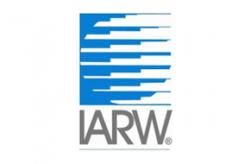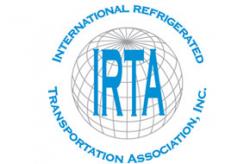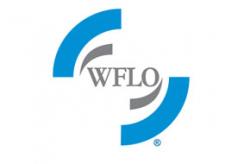Supply Chains and War
The impact of the Ukraine conflict on regional and global logistics.
The Russian invasion of Ukraine has rattled global supply chains that are still in disarray from the pandemic, putting pressure on cargo capacity and raising concerns about further supply chain disruptions.
There have been myriad impacts on logistics and supply chain operations in the form of rapidly increasing oil and gas prices, shippers and carriers implementing contingency plans, prolonged deliveries and a ceasing of port operations in Ukraine. Western Europe and Russia have imposed reciprocal flight bans bringing travel between the two regions to a halt and impacting air shipments between Asia and Europe, which now must divert around Russian airspace. Shipping ports around the Black Sea have closed, halting cargo vessels and disrupting vital shipping routes that carry much of the world’s wheat and other agricultural products.
Sanctions and Disruptions
Many Western countries have announced a series of escalating sanctions on Russia over its invasion of Ukraine. In early April, the EU announced a ban on Russian vessels and Russian operated ships from accessing EU ports. The commission did indicate there would be certain exemptions such as agricultural and food products. The Commission added it will propose a full ban on Russian and Belarusian freight road operators working in the EU. Again, certain exemptions cover agricultural and food products. Maersk announced it would temporarily suspend all shipments to and from Russia by ocean, air and rail, with the exception of food and medicine. Ocean Network Express, Hapag-Lloyd and MSC, the world’s other major ocean carriers, have announced similar suspensions. “Our operations in Europe are port-centric and many of our customers had product stuck on Russian vessels once the sanctions against Russian vessels were put in place,”explains Rudy Sandoval, Vice President of Operations – Europe Region, Americold. “Additionally, product we stored in our warehouse could not be shipped out on time because the vessels were barred from port. The ban has also blocked the Russian port of St. Petersburg, causing a significant reduction in available containers to load.” He adds customers have had some shipments diverted to Rotterdam, Netherlands. Kris Verbruggen is the CEO and Managing Director of Frigo Logistics, a Polish logistics operator mostly focusing on domestic distribution. “We have a small office in Moscow with two Russian employees. For now, we have decided to halt our activities. However, this is only our own decision and not connected to sanctions.” Although Lineage does not have operations in either Ukraine or Russia, Harld Peters, President, Lineage Europe, says the company does have teams in Poland and across Europe that have been impacted. “We are supporting our team members through continued payment of salaries for those directly affected and emergency relief funds. We are also supporting team members who are volunteering and hosting refugees from Ukraine.
Food Prices
Peters points out rising food prices and global food security are two of the biggest challenges the global community faces. “As we’ve seen in the European Union, governments around the world are taking steps to address food affordability issues and to make our agriculture and food supply chains more resilient and sustainable,” says Peters. “While it is too early to tell the medium-long-term impacts of the conflict in Ukraine, we are committed to working with governments, partners and suppliers globally to optimize food supply chains, and to building more sustainable food chains to help address rising costs and increase food security.” Frank Huckschlag, Executive Vice President Global Operations, NewCold, says their customers are already having problems getting some raw materials because of the situation in Ukraine. “Looking at the coming harvest, for sure there will be a bigger global impact.” Sandoval says Americold is very concerned. “We’re already seeing the impact on food prices, power and labor.
Energy Costs
Huckschlag points out as consequence of the sanctions against Russia, energy costs are increasing dramatically, which is one of the main cost drivers of their business. “Clearly, the effect of the war on our costs is very large,” notes Verbruggen. “On the other hand, as a logistics operator, we are in contact with our clients and explain to them the underlying reality. Most often, the objective indicators are accepted by the clients, and they generally accept the increased prices as well.” Peters says Lineage is mitigating the impact of these rising costs by doubling down on its investment in sustainable energy initiatives like solar arrays, wind turbines and flywheeling. “We are also investing in infrastructure such as reefer plugs, which allows a reefer to dock and unload without running the diesel engine,” explains Peters. “And we are also looking to the future and how we can do the same with diesel trucks."
Labor Impact
Sandoval says labor remains challenging. “We have had a couple of associates return to Ukraine to fight in the conflict. We have a site in Poland, so our associates in that country continue to volunteer their time and services to assist Ukrainian refugees as they enter Poland.” Verbruggen says the company has approximately 100 workers from Ukraine. “A handful of them returned to Ukraine to join the army. This was temporarily disturbing but did not structurally impact the operations.” “A lot of truck drivers and part-time colleagues working in the warehouse in our facility in Poland come from Ukraine so we already feel a lack of resources that could be worse towards the summer,” says Huckschlag. He added the company also has Ukrainian colleagues, for example, in its head office. “We try to support them in the best way we can by talking with them a lot about the situation of their families in Ukraine.”
Capacity and Rates
Spot market rates have spiked significantly due to the conflict, notes Sandoval. “Occupancy has increased due to vessels not porting and emptying out inventories (loss of turns),” says Sandoval. “Once vessels begin to arrive, inventory levels will decrease, and turns will increase as previously expected.” “For now, the effect of inflation is great, with more frequent and larger price increases,” says Verbruggen. Huckschlag says the impact on pricing is not known at the moment. “But looking at the situation in the United Kingdom last year, our experience tells us that it could easily be plus 30%.”
Aid and Comfort
Verbruggen reports Frigo Logistics has organized free transportation for non-governmental organizations that are shipping products to refugees and to Ukraine. The company also organized a fundraiser among its employees with the company doubling the donated amount. “In addition, we give financial and psychological support to our Ukrainian workers and support in different ways local initiatives in Poland in the communities where we are active,” Verbruggen says. “A number of our workers are also privately volunteering to host Ukrainian families in their house.” Huckschlag says NewCold is supporting shipments of food to Poland and Ukraine through its own transport organization. On a local level in Poland, Americold associates are donating clothing, food and other supplies and volunteering at shelters that are regularly receiving refugees from Ukraine, says Sandoval.
“Our Polish site also donated money to a local shelter to assist with refugees. And, in the European region, we donated €30,000 to the International Red Cross to assist with aid efforts,” Sandoval notes. “We’ve partnered with Feed the Children (our primary nonprofit partner in the United States) to direct monetary donations to one of their partner organizations in Poland that is providing food baskets to refugees.” Sandoval points out many Americold associates in the United States, particularly in the Northeast corridor where there are larger Ukrainian populations, have also asked how they can help. Unequivocally, Lineage Logistics stands with the people of Ukraine, and we are committed to providing support in every way we can, says Peters. “Through the Lineage Foundation for Good, we have donated immediate direct aid to two relief organizations in the region – Polish Humanitarian Action and the Global Foodbanking Network – to support food banks in Ukraine, Poland, Hungary, Moldova, Slovakia and Romania,” adds Peters. “Our team members and many of our partners were also very keen to show their support. In response, our co-founder, Adam Forste, in partnership with the Lineage Foundation for Good, ran a dollar-for-dollar matching campaign for all our team members, vendors and customers.” Peters says in addition, many Lineage locations and teams have organized food, medical and hygiene supply drives of their own to help those affected by the crisis, and they are collaborating to ensure those materials reach the people affected.
ALEXANDRA WALSH is a Senior Publishing Consultant with Association Vision and Editor-In-Chief of COLD FACTS.
EMAIL: awalsh@associationvision.com
Source: Cold Facts May/June 2022 issue



